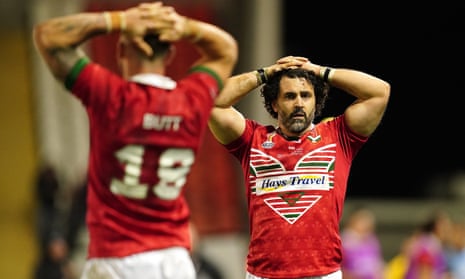
LeagueNews.co | Jess Malloy
In a recent meeting held in Singapore, the International Rugby League made several announcements regarding the future of the sport.
The most significant news is that the next World Cup, originally scheduled for 2025, will be pushed back a year to 2026.
The tournament will be held in the southern hemisphere and will maintain its three-tournament format, featuring men's, women's, and wheelchair events.
Following the World Cup, standalone tournaments for women will be organized in 2028 and 2032.
Additionally, the International Rugby League revealed plans for two Tri Nations tournaments to be played in the southern hemisphere each October.
These tournaments will be accompanied by a tour of the northern hemisphere by a seventh Pacific nation.
Tonga is set to tour this year, with Samoa or Fiji likely to follow next year.
In 2025, England's men and women will travel to Australia for the first men's Ashes series since 1992, as well as the inaugural Women's Ashes series.
New Zealand's men and women will then visit England and France in 2026, and the Kangaroos are planning their first Ashes tour since 2003 in 2028.
However, amidst these exciting developments, there is also some disappointing news.
The next two men's World Cups will see a reduction in the number of teams from 16 to 10.
This decision was made with the intention of allowing commercial benefits to trickle down from the elite level to the rest of the sport.
IRL chair Troy Grant defended the move, claiming that the previous World Cup lacked competitiveness and that showcasing the best teams would provide greater commercial opportunities.
Grant further explained that hosting a 16-team tournament incurred significant costs without generating sufficient commercial benefits.
By reducing the number of teams, particularly with a focus on Pacific nations, costs will be significantly reduced for the 2026 World Cup.
Unfortunately, this means that the days of underdog stories featuring everyday individuals such as plumbers, teachers, firemen, and accountants competing alongside millionaire superstars may be over.
While the decision to reduce the number of teams may have its financial merits, it raises concerns about the inclusivity and integrity of the World Cup.
The group stages of the tournament have traditionally provided opportunities for unexpected upsets and inspiring narratives.
However, it seems that the focus has shifted towards prioritizing commercial success over these elements.
Overall, the future of rugby league appears to be a mix of exciting opportunities and pragmatic decisions.
The sport will continue to expand its reach with tours, standalone tournaments, and the staging of the World Cup in the southern hemisphere.
However, the reduction in the number of teams for future World Cups raises questions about the true pinnacle of the sport and the balance between commercial success and inclusivity.
